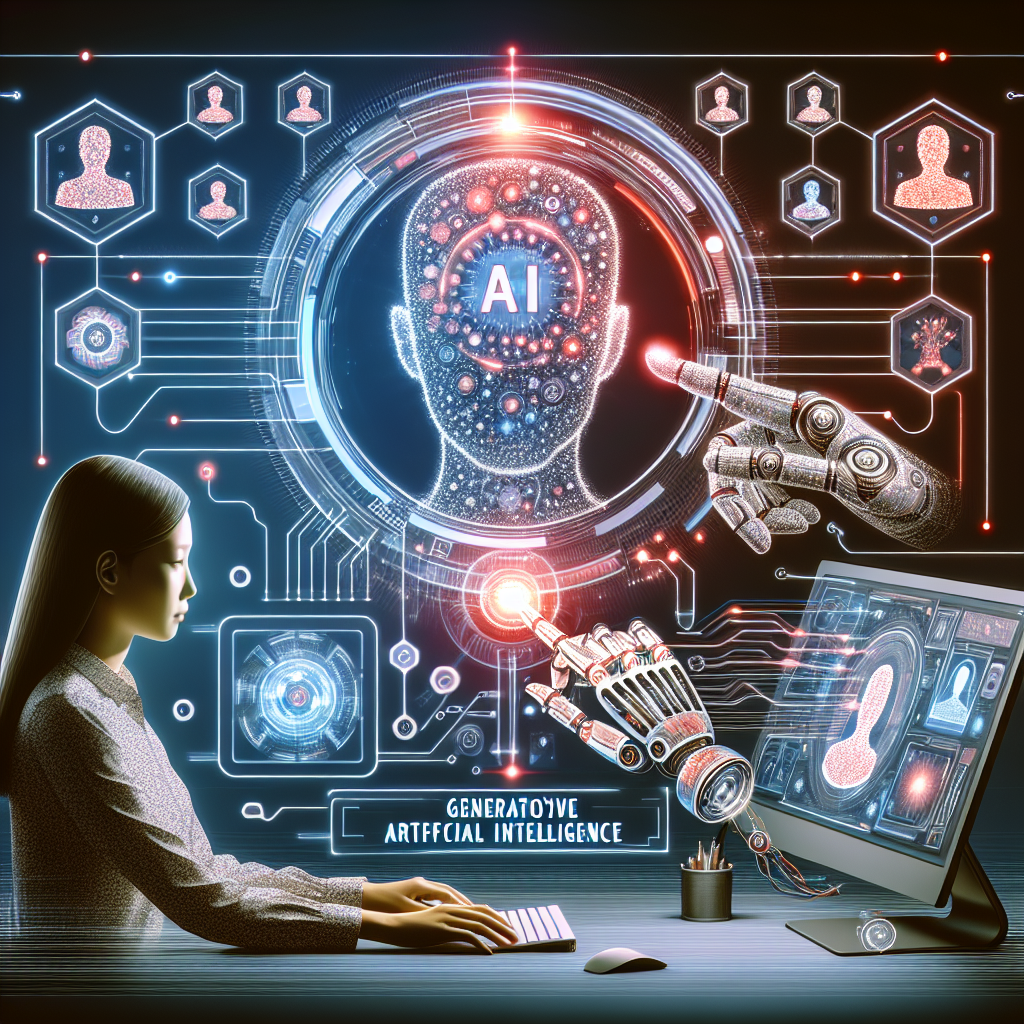In today’s digital age, personalized user experiences are becoming increasingly important for businesses looking to stand out in a crowded marketplace. Leveraging generative AI, a subset of artificial intelligence that focuses on creating new content, can help businesses deliver more tailored and engaging experiences to their customers.
Generative AI works by using algorithms to generate content such as text, images, and videos that are unique and personalized to each user. This technology has the ability to analyze vast amounts of data and create content that is tailored to individual preferences and behaviors. By harnessing the power of generative AI, businesses can create more personalized and engaging user experiences that drive customer satisfaction and loyalty.
One of the key benefits of leveraging generative AI for personalized user experiences is the ability to create content at scale. Traditional methods of content creation can be time-consuming and costly, but generative AI can generate content quickly and efficiently. This allows businesses to create personalized experiences for a large number of users without the need for manual intervention.
Additionally, generative AI can help businesses better understand their customers and their preferences. By analyzing user data and behaviors, generative AI can create content that is tailored to each individual user, leading to more meaningful and relevant user experiences. This level of personalization can help businesses build stronger relationships with their customers and drive increased engagement and loyalty.
Generative AI can also help businesses automate the content creation process, saving time and resources. By using generative AI to create personalized content, businesses can free up their teams to focus on other strategic initiatives. This can help businesses streamline their operations and improve efficiency, ultimately leading to a better overall user experience.
There are a variety of ways that businesses can leverage generative AI for personalized user experiences. For example, businesses can use generative AI to create personalized product recommendations based on a user’s browsing history and preferences. This can help businesses increase sales and drive customer satisfaction by offering users products that are relevant to their interests.
Businesses can also use generative AI to create personalized marketing campaigns that target individual users based on their behaviors and preferences. By delivering targeted content to users, businesses can increase engagement and drive conversions. This level of personalization can help businesses stand out in a crowded marketplace and build stronger relationships with their customers.
Overall, leveraging generative AI for personalized user experiences can help businesses drive customer satisfaction, loyalty, and engagement. By creating content that is tailored to individual users, businesses can deliver more meaningful and relevant experiences that resonate with customers. As generative AI continues to evolve, businesses will have even more opportunities to leverage this technology to create personalized user experiences that set them apart from the competition.
FAQs:
Q: How does generative AI work?
A: Generative AI works by using algorithms to generate content such as text, images, and videos that are unique and personalized to each user. This technology analyzes vast amounts of data to create content that is tailored to individual preferences and behaviors.
Q: What are the benefits of leveraging generative AI for personalized user experiences?
A: Some of the key benefits of using generative AI for personalized user experiences include the ability to create content at scale, better understand customer preferences, automate the content creation process, and drive customer satisfaction, loyalty, and engagement.
Q: How can businesses leverage generative AI for personalized user experiences?
A: Businesses can use generative AI to create personalized product recommendations, personalized marketing campaigns, and other tailored experiences that resonate with individual users. By analyzing user data and behaviors, businesses can create content that is relevant and engaging to each user.
Q: What are some potential challenges of using generative AI for personalized user experiences?
A: Some potential challenges of leveraging generative AI for personalized user experiences include ensuring data privacy and security, managing the complexity of the technology, and overcoming potential biases in the algorithms. Businesses must carefully consider these challenges when implementing generative AI in their user experiences.

